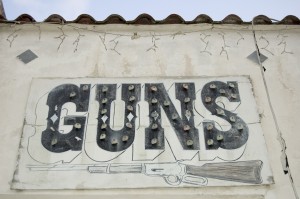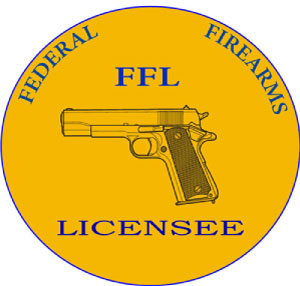FFL Basic Requirements For Firearms Dealers
If a person is engaged in the business of dealing in firearms, the federal law requires the person be licensed in accordance with the Gun Control Act (GCA). FFL license requirements apply to each place of business from which the person deals in firearms. Applicants fill out and execute the ATF Form 7, as well supply the additional documents required by regulations; fingerprints, photos and others as well. Your particular situation may require additional documents depending on the business structure and other factors. ATF will evaluate the form for accuracy and completeness, then schedule an appointment to examine the business premises and interview the applicant.
The following are basic requirements under the GCA paraphrasing 27 CFR §478.47:
1. Applicant is at least 21 years of age
2. Not prohibited from possessing firearms
3. Not willfully violated the Gun Control Act
4. Has been truthful in providing information on the ATF F 7, and has not willfully failed to disclose material information
5. Has a premises from which to conduct the firearms business
Again, these are the basic requirements under the GCA. The categories above are pretty straight forward. Item 5 “premises” can at times be the most difficult requirement to meet for some FFL applicants.
FFL Application – How Long Will ATF Take To Approve Or Deny My Application?
27 CFR §478.47(c)
The GCA gives the Bureau of Alcohol, Tobacco, Firearms and Explosives 60 days to either approve or deny the Application For a Federal Firearms License (ATF F 7). The regulation indicates the 60 day clock begins the day a “properly executed application was received”.
The process usually takes less time, more like 45 days to completion. It’s critical that applicants accurately complete the ATF F 7 and provide the Investigator (IOI) with everything they need to complete the p rocess. If the applicant delays on pending issues, or acquiring documentation etc, it’s likely that ATF will urge the applicant to withdraw the application until the issues are resolved in order to stay within the 60 day window. If the applicant cannot resolve the issues within the designated period, ATF may begin a denial procedure.
rocess. If the applicant delays on pending issues, or acquiring documentation etc, it’s likely that ATF will urge the applicant to withdraw the application until the issues are resolved in order to stay within the 60 day window. If the applicant cannot resolve the issues within the designated period, ATF may begin a denial procedure.
What Happens If My Application Is
Denied?
If the ATF (Director) has reason to believe an applicant for a federal firearms license is not qualified to receive a license in accordance with the federal law, a notice of denial can be issued to the applicant. The form will detail the reasons and facts ATF is relying upon as a basis for denial. The applicant will have 15 days to respond to the notice; failure to respond will likely lead to an immediate denial of the application.
Otherwise, the applicant may respond by requesting a hearing in writing to the Director, Industry Operations for the ATF Field Office having custody of the application. The process of a hearing for this type of matter, as well as any other hearing on administrative matter related to license revocation or denial can be a long, tedious and generally cumbersome prospect for both ATF and the applicant.
It is usually in the best interest of the applicant to withdraw the application rather than go through the administrative process. The potential denial of an application for a federal firearms license is very serious business. ATF reported the denial of 27 applications out of 17,186 submitted for calendar year 2014; an insignificant figure. During the same period, 2,192 applications were withdrawn by the applicant. It’s likely that many of the withdrawals would have been denial cases had the applicants decided to go that route. However, it is prudent to withdraw an application if one is certain that the law will not support one’s position in a denial proceeding. The applicant will have another opportunity to qualify without having to provide a lengthy explanation about a denial proceeding.
Federal Firearms License Veteran’s Service
This is a Service – Not a FFL kit.
Free Consultation from a former ATF Investigator – 12 Years with ATF
Disabled Vets may qualify for free services

